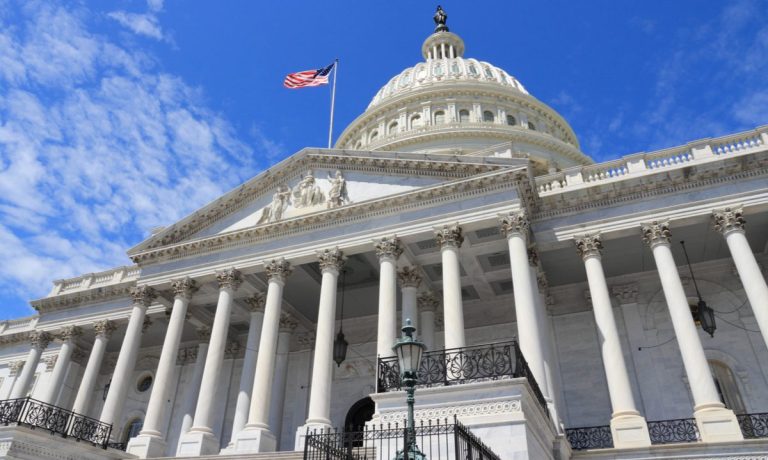Congress Sets Stage for FinServ Regulation to Heat Up This Summer

As the Consumer Financial Protection Bureau got an effective “green light” from the Supreme Court to keep operating, and as several bills have made their way out of committee in the U.S. House of Representatives, it’s gearing up to be a long summer of heated debate on financial services regulation.
Late last week, the House Financial Services Committee advanced 11 pieces of legislation that are now likely to head to the full chamber for consideration.
Among the bills winding their way to the floor of the House of Representatives, which touch on everything from housing to veterans’ benefits, is H.R. 8337, the Bank Resilience and Regulatory Improvement Act.
Congressional sponsors said the act “would promote regulatory tailoring for community financial institutions, provide for a more transparent and timely bank merger review process … and give small bank holding companies additional relief.”
Delving into the act’s language, one of the key actions would be to increase the asset “threshold” for several regulations covering banks to $50 billion from $10 billion.
CFPB Is Still in Focus
There are indications that the CFPB will continue to be in the cross-hairs of actions on the Hill.
The oversight of the CFPB may indeed shift to Congress. As Amias Gerety, partner at venture capital firm QED Investors, said in an interview with PYMNTS published this week, the bureau may find itself under more Congressional oversight as time goes on.
H.R. 8338, the “Clarity in Lending Act,” seeks to “provide a safe harbor for depository institutions to offer responsible small-dollar credit products; require the CFPB to clarify standards for unfair, deceptive or abusive acts or practices enforcement actions; [and] provide small financial institutions with relief from CFPB’s small business data collection rule.” The proposed legislation would also “require the CFPB to establish a process to safeguard small business data.”
The verbiage of the act notes that such rules and clarification on procedures and policies governing civil monetary penalties must be issued within 180 days of the passage of the legislation. Final rules shall include a cost-benefit analysis.
U.S. Rep. Patrick McHenry, chair of the House Financial Services Committee, re-introduced legislation that would set up Financial Services Innovation Offices (FSIO) within each financial regulator, including the CFPB.
CFPB Director Rohit Chopra said in his own remarks in the aftermath of the Supreme Court’s decision that the “ruling makes clear the CFPB is here to stay.”
“Here’s what will happen next,” he added. “First, the CFPB will be able to forge ahead with our law enforcement work. During the pendency of this Supreme Court case, a number of the CFPB’s enforcement actions were put on pause.”
“We’ll continue to defend our rule to close a longstanding late fee loophole on credit cards, which credit card giants have abused for years,” he said. “We’ll be working to finalize rules on overdraft fees and nonsufficient fund fees.”
He added that “the CFPB will be firing on all cylinders.”
As the CFPB prepares to bring its efforts to bear on lenders and banks, lawmakers look set to fire on all cylinders too, through a flurry of bills seeking clarity, input and guardrails on regulatory reach.